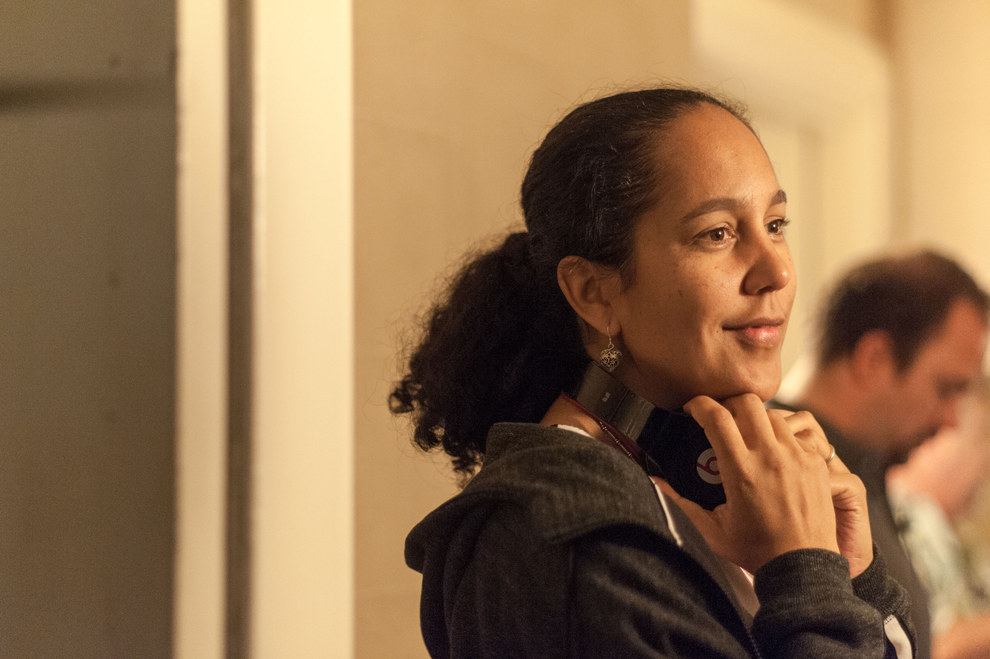
When Gina Prince-Bythewood last directed a big-budget film, Barack Obama had yet to be sworn in as president. Now she’s back with “Beyond the Lights,” an appealing new film that chronicles the rise of Noni Jean, a Rihanna-esque R&B singer who meets trouble on the road to superstardom.
The film begins just a few weeks before the release of a raunchy debut album from Noni, played by Gugu Mbatha-Raw of “Belle.” The lewd lyrics upend a career trajectory that Noni had hoped might mimic Nina Simone’s. Overwhelmed by the realities of becoming a “product,” Noni perches precariously on a balcony after the Billboard awards, planning suicide. Kaz Nicol (Nate Parker), the LAPD officer assigned to her security detail, reaches her just in time to save her from falling.
After this damsel-in-extreme-distress opening, the pair begins a lovely game of peeling back one another’s layers. The plot moves briskly, emphasizing what the characters are not saying. Much is conveyed with a sly glance or a wide-eyed look of innocence. Two veterans anchor the film: Minnie Driver as Macy Jean, the momager looking out for her own interests, and Danny Glover bringing his signature gruffness to the role of Capt. Nicol, Kaz’ father.
In this stellar ensemble, Mbatha-Raw shines, impeccably capturing Noni’s vulnerability and eventual discovery of self. The last third of the film is a wonder visually, as, scene-by-scene, Mbatha-Raw strips down from the packaged veneer and steps into a more authentic persona. Parker’s Kaz brings depth in what could have been a cliche role. The chemistry between the two leads is undeniable.
As a rare African-American women behind the camera in Hollywood, Prince-Bythewood understands the difficulties. Her last film, “Secret Life of Bees,” was the only top-grossing movie from a black female director released in 2008. Since then, women have directed fewer than five percent of the major studio films.
“People ask me if I feel discriminated against as a black female director, and I actually don’t — because I’m offered movies all the time to direct,” she told Flavorwire. “What’s discriminated against are my choices: I like to direct what I’ve written, and what I like to focus on are people of color. So that is absolutely the tougher sell, and the films that you have to fight much harder for, because the people making decisions are going to green-light films that they identify with and that make sense to them, and there are no people of color running studios.”
“Beyond the Lights” showcases what can happen when stories are told by the people yearning to tell them. The movie enters wide release this weekend.
